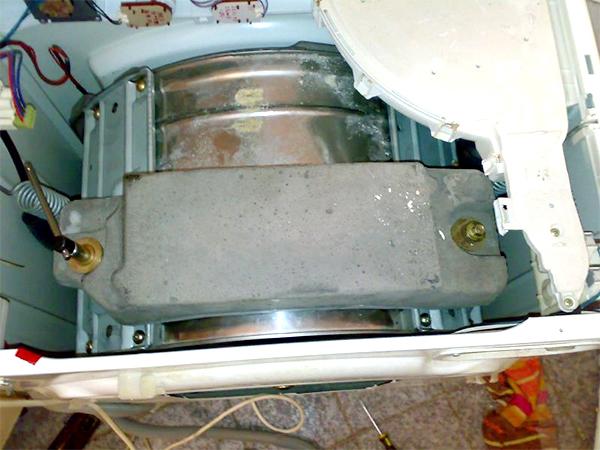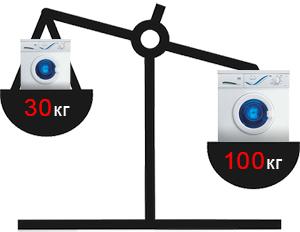Washing machines have a lot of different parameters that are mandatory criteria for their choice. Undoubtedly, characteristics such as spin speed, washing programs, energy efficiency, the amount of laundry to be loaded and others are the most important. But if you have been touched by a move, especially to another city where you need to order the transportation of all your things, including a washing machine, then you will be interested not only in the characteristics and washing machine dimensionsbut also its weight. After all, any transport company calculates the cargo depending on its volume and weight.
Therefore, such a parameter as the weight of the washing machine, in this case, plays an important role. And if you generally constantly change your place of residence, then the lighter the washer, the easier it will be to transport it from place to place.
Why do washing machines have different weights
On the market you can find a lot of different models of washing machines. And what is most interesting, their weight can be drastically different. Looks like two cars different width, and they have the same weight, how so? No need to think that the narrower the washing machine, the less its weight.. This is not always the case, in some cases narrow washing machines weigh more than wide ones.
There are many different parts in a washing machine.Some of them are especially massive, such as the body, drum, tank - they occupy the bulk of the entire machine. But, as strange as it may seem, they are not the heaviest. The main weight of the washing machine is given by counterweights - they are the ones that make the unit very heavy.

Therefore, different manufacturers can install counterweights of different weights. Accordingly, if you meet two cars of the same size and characteristics, but with different weights, then do not be surprised. The only thing you need to think about is which one to give preference to.
Which machine to choose: light or heavy
Let's imagine that we have two completely identical washing machines in terms of characteristics - they have the same dimensions, the same programs and the same tank volume. But the weight of these washing machines is different, the first of them weighs 5 kg more than the second. What will it affect and which one should we choose?
The fact is that during washing and especially spinning, the drum spins, thereby forming a centrifugal force. This same force tries to push the laundry away from the center of the drum, thereby creating an imbalance. In fact, we get a kind of eccentric. Accordingly, the machine loses stability and vibration begins.
In order to somehow compensate for this vibration, manufacturers add weight to the machine, and then it is more difficult for centrifugal force to “rock” the unit. From this we can conclude: the heavier the machine, the quieter it will run and it will have fewer vibrations.
Separately, it must be said about narrow cars. As you know, they take up much less space, respectively, they have less support area.It is easier to unbalance such a machine, therefore, on narrow washing machines, an additional few kilograms of weight will be especially noticeable. They are simply necessary to reduce vibration.
So, when choosing a washing machine by weight, decide whether you will often move and at what distances. If there are no major moves planned, then you should not particularly focus on the weight of the washing machine - take the one that is heavier - this will give you confidence that there will be less vibrations.
How much does a standard washing machine weigh
The weight of different washing machines is different and can vary from 30 to 100 kg depending on the model..

The optimal weight for the average washing machine is the range from 50 to 70 kg. For a more accurate figure, you can find the model of the washing machine you are interested in on Yandex.Market and see the exact weight in its characteristics.
